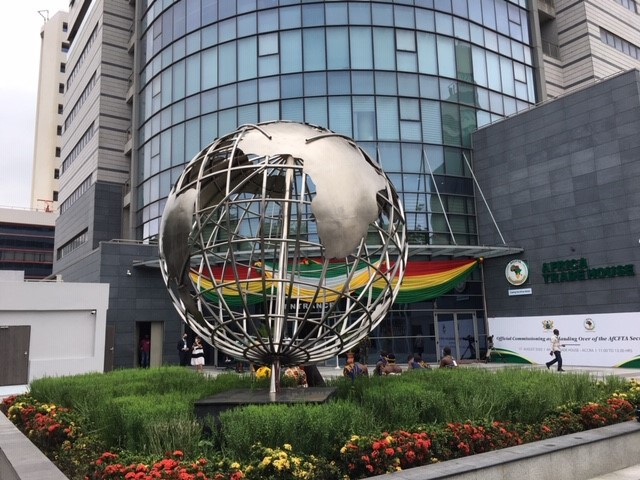The African Continental Free Trade Agreement (AfCFTA) offers a major opportunity for African countries to cushion the economic impacts of the COVID-19 pandemic and is a vehicle for continued recovery to boost growth, reduce poverty, and broaden economic inclusion.
This observation was made during a high-level panel discussion at the 2021 African Economic Conference, currently being held in a hybrid format, with key delegates gathering on the Cabo Verde island of Sal, as well as virtually.
The panel discussion, moderated by Mr. Stephen Karingi, Director of the Regional Integration and Trade Division of ECA, focused on the implementation of AfCFTA to support countries in pushing back headwinds of a pandemic-induced recession.
“The African Continental Free Trade Area (AfCFTA) is a stimulus for Africa’s socio-economic recovery from the COVID-19 crisis, and a driver of sustainable development particularly for women and youth in Africa,” said Ms. Joy Kategekwa, Strategic Advisor to the Assistant Administrator and Regional Director of the United Nations Development Programme (UNDP).
She underlined that the path to more robust and resilient African economies will be a challenging one, calling for boldness, imagination, and tenacious implementation of AfCFTA on the part of policymakers to address the lack of financing—including among informal businesses—and to support promising sectors in order to jumpstart and sustain an economic revival.
Speaking on the issue of inclusive access to development finance under the AfCFTA, Ms. Nadira Bayat, Senior Gender and Trade Specialist for UN Women, called for practical economic empowerment interventions specifically for women-led businesses under the AfCFTA post Covid-19.
“Operationalizing an inclusive AfCFTA that encompasses women economic empowerment outcomes requires closing the persistent gender gap in access to finance,” Ms. Bayat underlined.
Echoing the same sentiments, Ms. Kategekwa stated that adequate access to financial services depends on the application of a regulatory framework. This, according to Ms. Kategekwa, highlights the need for a policy mix that creates the conditions to strengthen both the provision of financial services and the enabling environment such services require.
On his part, Mr. Frederik Teufel, Advisor to the Vice-President of the African Development Bank (AfDB) for Regional Development, Integration, and Business Delivery agreed with other panelists on the positive role AfCFTA can play in the current economic recovery and the critical need for complementary measures in order to build ownership and sustained momentum during the operational phase of the AfCFTA.
“Africa also needs the effective functioning of the Regional Economic Communities (RECs) if the AfCFTA is to achieve the desired outcomes,” Mr. Teufel said.
In closing, Mr. Stephen Karingi challenged participants to take up the opportunities offered by AfCFTA and make it a success. He highlighted that the AfCFTA presents a unique opportunity for Africans to use trade as a vehicle for Africa’s economic transformation including development finance, while allowing the continent to set its own rules.
The objective of the 2021 African Economic Conference, which is being held from 2 to 4 December in Sal, Cabo Verde, is to discuss ways to sustainably grow the continent’s development funding sources. The conference is organized by the African Development Bank, the United Nations Development Programme, and the Economic Commission for Africa. The conference will provide a platform for established academics and young researchers to present their solution-oriented research to policymakers and decision-makers.
ECA
